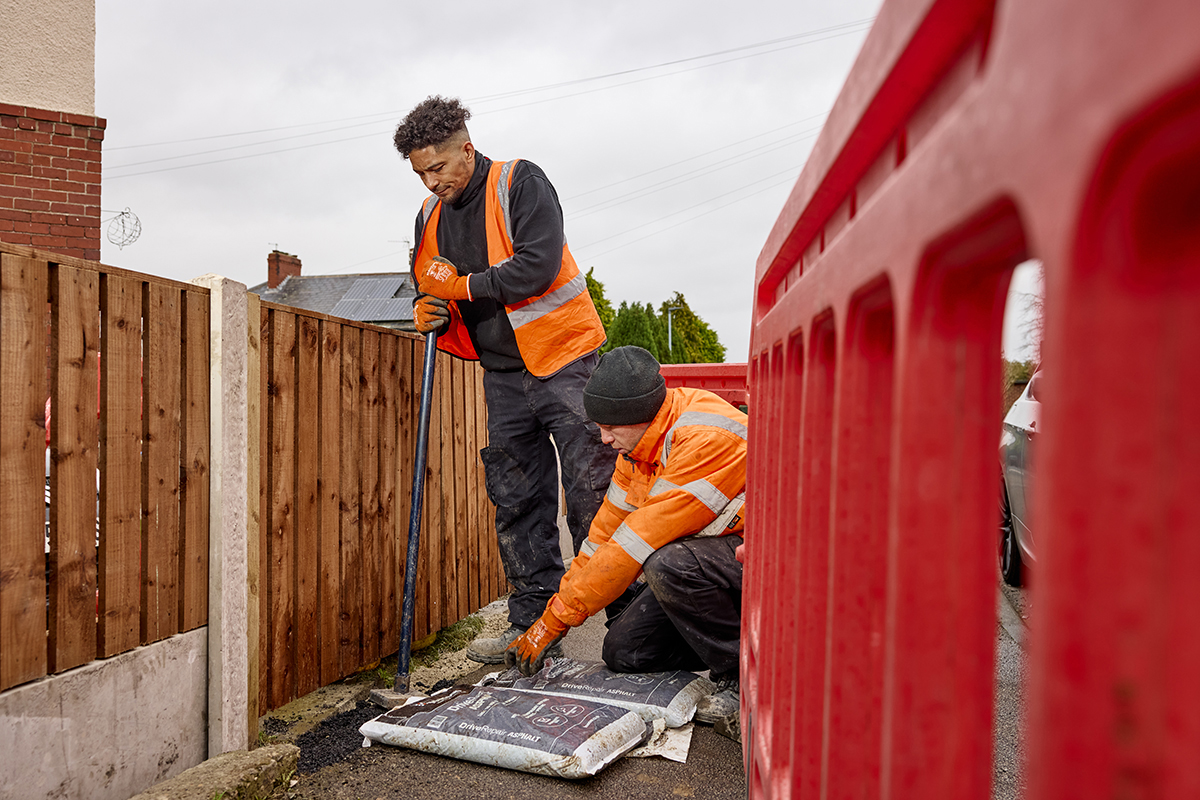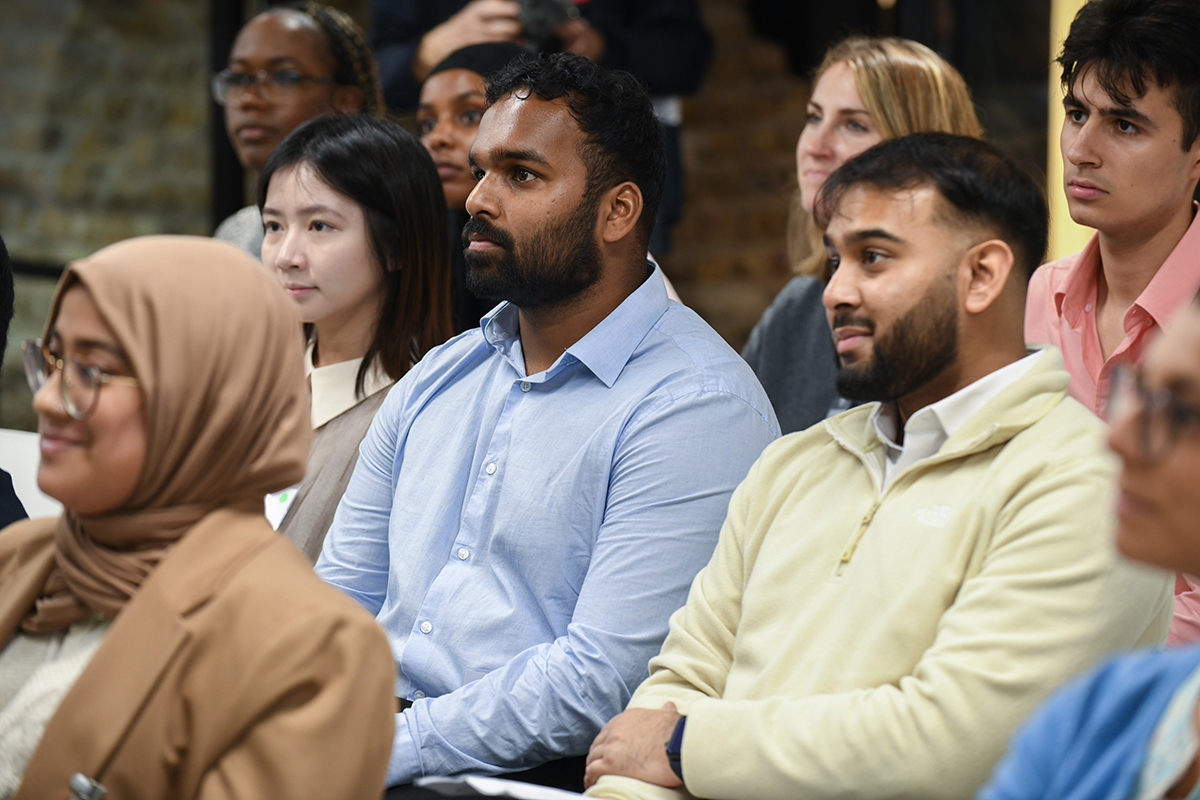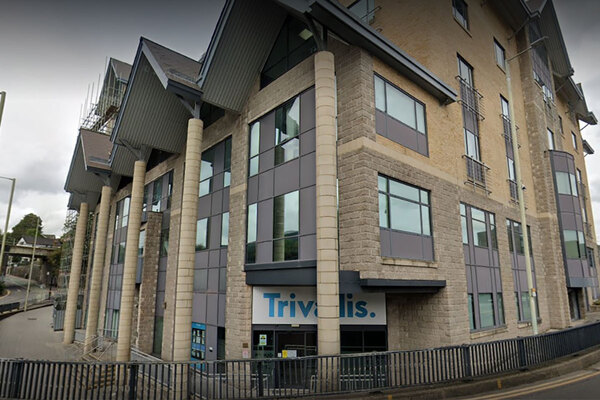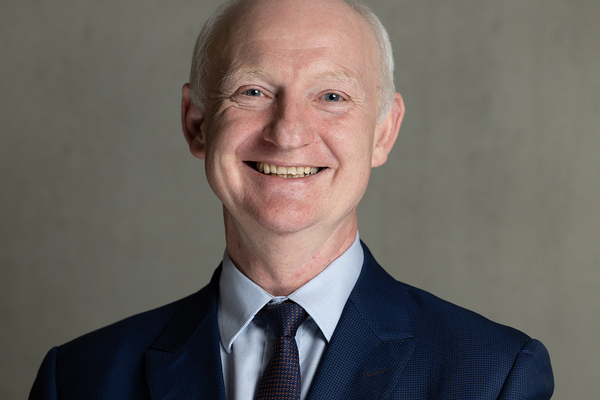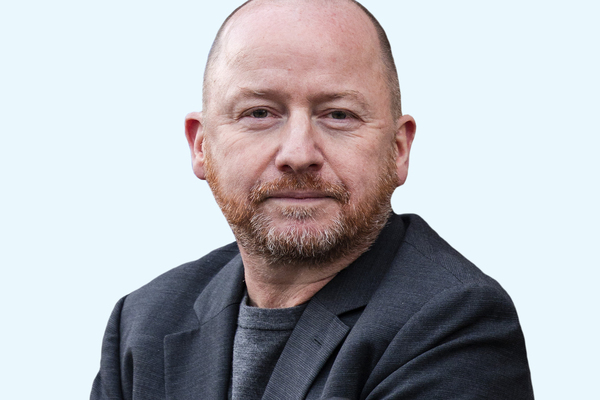You are viewing 1 of your 1 free articles
The placement scheme opening doors for ethnic minority people in London’s built environment
To tie in with Inside Housing’s new Housing Hires campaign, we find out about a work experience programme which is aiming to get more ethnic minority people to work in London’s built environment. Sonia Sharma-Karia reports
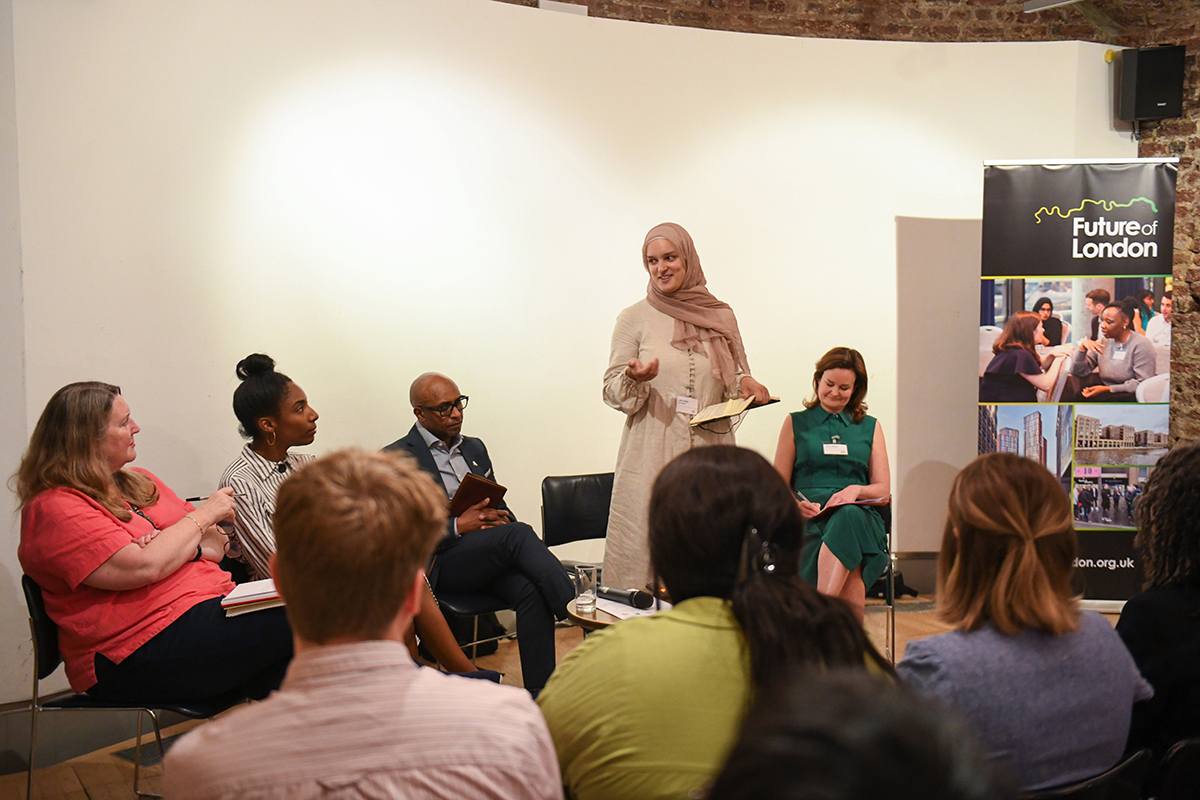
![]()
When Leila Atallah graduated in architecture from the University of Reading, she knew she wanted to work in the built environment, but did not exactly know where she would “fit in”. After applying for several jobs without any luck, she came across the Emerging Talent Programme by chance on LinkedIn.
The paid work experience programme was created by Future of London – a not-for-profit company that supports a network for career-starters to established leaders who are passionate about working in London’s built environment, with 60 member organisations including local and regional authorities, housing associations and SMEs.
After stumbling across the advert and seeing the variety of placements candidates would be sent on, Ms Atallah thought it was “too good to be true”, saying: “It was an amazing opportunity to allow me to narrow down what I wanted to do.”
According to the Chartered Institute of Building’s 2021 Special Report on Diversity and Inclusion in Construction, only 5-7% of people in UK construction are Black, Asian or from other underrepresented ethnic groups, dropping to 1% or fewer among senior industry roles.
The Future of London’s Emerging Talent Programme aims to change this. The host organisations pay Future of London a small programme management fee and enough to cover the recruits’ salaries, which depending on the cohort will be between £25,000 and £28,000.
The 15-month work experience scheme places recruits across the built environment sector. While the majority of the candidates are recent graduates, the programme has also had career-changers and those who have worked in the sector, albeit in junior roles who were looking to progress.
First cohort
Ms Atallah was selected and became one of the first cohort of the new programme in 2022. She joined the Emerging Talent Programme and undertook three placements at housing association Metropolitan Thames Valley, developer Socius and Camden Council. She now works as a design advisor at planning authority Ebbsfleet Development Corporation.
For Ms Atallah, the placements allowed her to explore different paths in the built environment. “I knew what was important to me and what I was passionate about, but I didn’t know what the job title was,” she says. She did not think her background impacted her ability to secure a job, but she did notice the lack of diversity.
“I think from an access point, there was a barrier there,” she explains.
For Nicola Mathers, chief executive of Future of London, the problem does not sit with a shortage of talent, but with the organisations.
“Routes into the sector need to be more diverse – there’s still too much reliance on personal networks or overly competitive graduate schemes that can disadvantage people from different backgrounds,” she explains.
Ms Mathers says that the team at Future of London thought long and hard about the recruitment process, timing, support offered, what questions they asked and the language they used, with candidates saying they could complete the application form in a way that was true to themselves.
Nithushan Rajaratnam, a candidate from the current ongoing second cohort, says had the programme not come about, he would not have known how to start his journey into the sector.
Mr Rajaratnam, from Kingston upon Thames, is currently on a placement at Westminster City Council as a development manager. He is working on Ebury Bridge – one of the council’s flagship regeneration projects – despite not studying or having direct experience in the built environment field, something that the programme helped him with.
Initially, starting from scratch worried him. Mr Rajaratnam graduated from the University of Sussex after gaining a degree in criminology, but started to lean towards social research in urban studies. He then undertook a 12-month internship as a community researcher for a social enterprise, where he worked on a research project for an estate regeneration in Barnet.
“This is where I realised a new interest in urban developments and the transformative potential from design and planning.”
He says it was evident early on that the Emerging Talent Programme was designed for those that had a passion and interest for working in the sector. The fact that his peers came from similar ethnic and cultural backgrounds was also a plus point.
“It’s another layer of assurance that you get from having peers from different backgrounds. I think some things we struggle with are to do with coming into a sector that’s traditionally not been very diverse,” he says. “That support from one another is such a fundamental thing.”
As part of the programme, each person is paired with a mentor, and they meet once a month. Mr Rajaratnam says this is one of the strengths of the programme. “He’s been a lifeline for me, especially starting in an industry where I didn’t know the corporate ways of working; he’s given me personal advice on those soft skills.”
Being part of the group also allowed him to establish a network, as well as contributing to a shared experience. “Even though we’re going through the same process, we are on different placements in different areas of the built environment. We’re all contributing to one vision of London’s built environment, which is always motivating when you do get together,” he says.
Being part of a cohort of people also from ethnic minority backgrounds was a highlight for Ms Atallah, who says it gave her a confidence boost and allowed her to be herself more. “I’m a Muslim, and there were a few other Muslims on the cohort. You feel less intimidated in the built environment [sector] when it comes to things like fasting in Ramadan, for example, or having to find a prayer space, or how to navigate alcohol-centred events. We can all relate to the experience,” she explains.
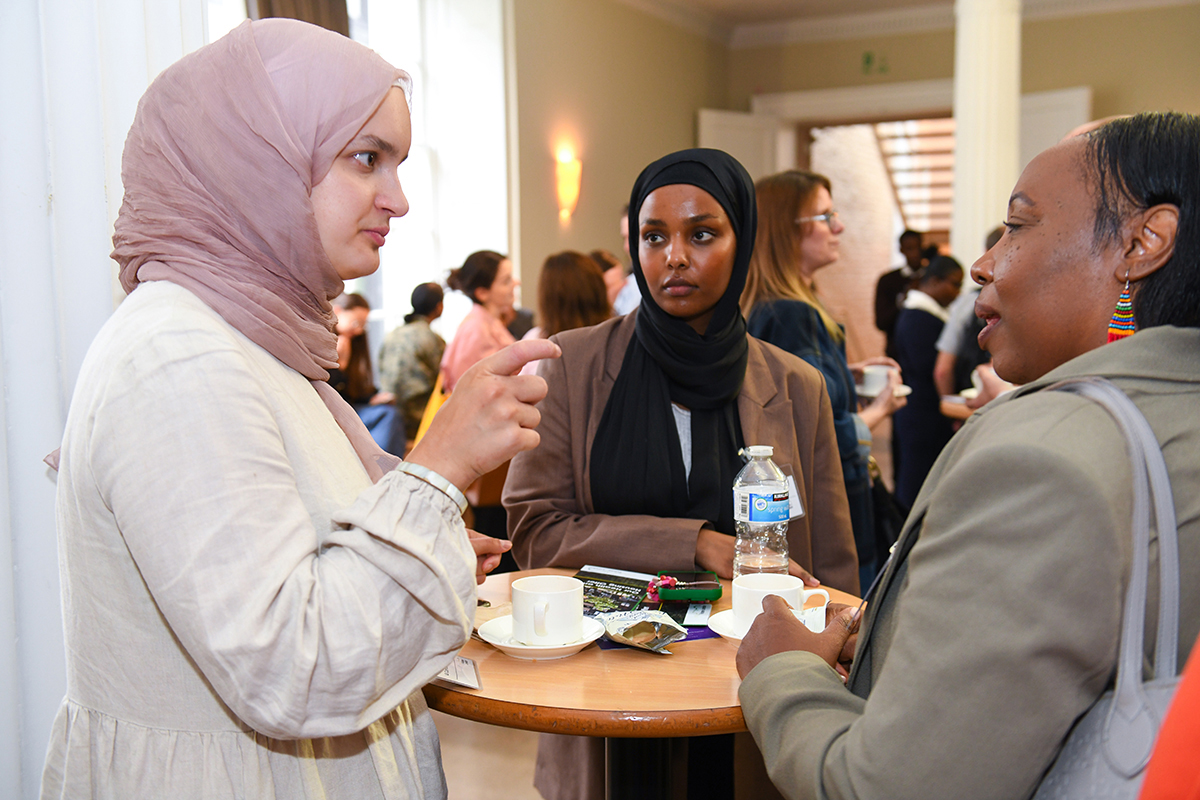
Out of 15 people in the first cohort, 11 secured roles in the sector after completing the scheme. Future of London has regular check-ins with both candidates and hosts to monitor satisfaction and performance. It also conducts a detailed evaluation at the end of each cohort to help them develop the programme, to ensure that candidates have a rewarding experience and want to stay, as well as making sure that hosts sign up for future rounds.
Diverse workforce
Recognising the real value a diverse workforce holds is something organisations need to understand. Londoner Dionne Bimpong is part of the third cohort. When we speak, she is preparing to begin her first placement in housing policy at the Department for Levelling Up, Housing and Communities.
She says firms need to show that they are truly invested in hiring ethnic minorities. “I don’t mean that in a tokenistic filler quota way,” she explains, “but actually seeking out people with genuine talent similar to the Emerging Talent Programme where it’s a process that you go through.”
“They can recognise you have unique experience from living in areas which are diverse; companies can be more open into receiving that. Especially in minority backgrounds, where you’ve grown up in a diverse community, there are so many changes in your area. For people from ethnic minorities, it’s really important that they have a say in the changes of the areas.”
Aside from programmes such as the Emerging Talent Programme, there are several other initiatives and processes host organisations can put in place to create a more inclusive workplace.
Future of London has just introduced cultural intelligence training from provider Unheard Voice, which is available for free to the entire Future of London network for every line manager supporting the recruits, where they will learn how to work effectively with people from different cultures and with different perspectives to them.
Line managers will be developing action plans to implement practical ways to embed their learning to support recruits and their organisation. To measure the success of these plans, each line manager will have an ‘accountability partner’ from another host organisation so that they can keep each other on track.
For Ms Mathers, industry conversations about diversifying staff at senior levels versus diversifying from the ground up are both crucial aspects, as visibility in the executive team sends a strong signal that the top jobs are achievable.
“There is not enough collaboration within the sector to create initiatives that support this,” she says. “This is the gap the Emerging Talent Programme and other Future of London leadership programmes are addressing in a tangible way.”
While progress has been made, there is still some way to go, but Ms Mathers wants to look back and show how the programme injected new talent into the sector, who are on the path to becoming future leaders.
“More widely, candidates from ethnic minority backgrounds don’t have to work twice as hard as others. They should feel respected and that they belong because others before them have succeeded and shown they can, too,” she says.
Housing Hires campaign aims
● Promote the sector as a place to work
● Share best practice and ideas about how best to recruit and retain staff in social housing
● Identify skills gaps and future skills needs in specific parts of the sector
● Promote the next generation of talent in the sector and give them a platform and networking opportunities as part of our 40 Under 40 list
● Support the Jobs Fair at Housing 2024 and Homes
● Work with groups of housing providers to tailor our CPD content to meet your needs
● Partner with Leadership 2025 to promote their work to develop Black, Asian and minority ethnic leadership in the sector
● Support and help create a new leaders network and discussion group
● Support and promote the Thinkhouse Early Career Researcher’s Prize
Sign up for the IH long read bulletin
Already have an account? Click here to manage your newsletters

